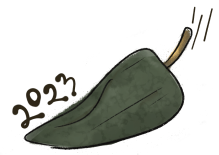
Hope
Things feel dire and hopeless in the world right now.
In my country we are struggling with more and more people, including children, experiencing houselessness. Substance use disorder is affecting more and more people, both those experiencing addiction and the people around them. People experiencing mental health, emotional, and behavioral challenges aren’t able to access necessary services and treatment. These three conditions feed into each other.
War, genocide, and human rights violations are happening throughout the world.
Where does hope come from? Who can we place our hope with? Government, institutions, and politicians? Probably not. We can hope those things have the power, willingness, and support to make changes. But it’s the kind of fatalistic hope that’s filled with doubt and scorn. It doesn’t believe in itself.
What is hope that believes in itself, what can it do, and where does it come from?
Faith shows the reality of what we hope for; it is the evidence of things we cannot see. Through their faith, the people in days of old earned a good reputation.
Hebrews 11:1-2 (NLT)
Real hope is rooted in faith. Hope rooted in faith results in constructive action. Constructive action by people with hope rooted in faith may not change the whole world all at once, but it changes the world of the people connected to them one by one.
For example, almost 10 years ago, I was enmeshed in an emotionally toxic and abusive relationship with someone I’d been in since 1996. We’d had a child together who was almost 5. My mental health was deteriorating. I had lost, some would say given up, relationships with my two adult children. On our child’s fifth birthday, there was a major conflict between this person and my visibly pregnant middle child. It didn’t get physical but the tension in the air was ripe with the potential for it. My child and their partner moved out that night and I thought I’d lost them forever.
When I went to church the next day, I felt defeated and hopeless.
There was a meeting for the children’s ministry program after service and during the meeting, conflict arose. When it was my turn to speak, I simply stated that I had too much conflict at home to be able to cope with it at church and would no longer participate.
After the meeting, one woman approached me and offered to walk through whatever I was going through with me if I was willing to let her. I didn’t have anyone else to turn to, so I said, “yes.”
Today, I have good relationships with both of my adult children. I am single-parenting my almost 15-year-old child and have a good relationship with them. I’m working a full-time job for the first time in 15 years. I have friends I can connect with and count on. Best of all, the work I do redeems all the trauma I’ve experienced since childhood and enables me to walk alongside other people who are on their healing and recovery journey.
One woman, stepping out in faith, held hope for me until I could hold it for myself. Now, I hold it for others.
I have faith that things improve. I have faith that we can and do recover. That faith grounds my hope and enables me to take action to help myself and support others.
For those of us who have faith in God the Father, Son, and Spirit our actions should be ones of hope on behalf of others. I hope more of us do exactly that.
You don’t have to have faith in the same God as I do, or any god at all, to have faith that things can and do improve. That faith is the foundation of hope that your action can change the world of one person for the better. Hope will spread and action will expand in that way.

